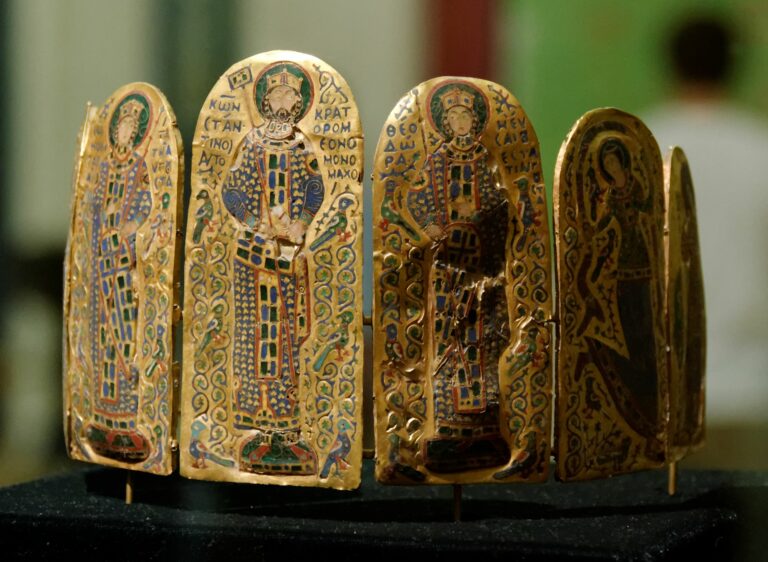Meaning
Biblical Significance
Jehoshaphat, a name steeped in biblical history, carries profound meaning that resonates through generations.
Its etymology reveals its core significance: ”
Jehovah has judged” or “The Lord has judged.” This powerful declaration underscores the divine sovereignty and justice prevalent in the Hebrew worldview.
The name Jehoshaphat belonged to a prominent king of Judah, who reigned from 873 to 848 BC. His reign was marked by both peace and prosperity, characterized by alliances with the Northern Kingdom of Israel and military victories against Moabite invaders. This historical context further illuminates the meaning of his name.
Jehoshaphat’s story is intricately woven into the narrative of the Hebrew Bible, particularly in 2 Chronicles 17-2 His reign exemplified the ideal of a righteous king who sought to align himself with God’s will and uphold His justice. The name itself serves as a reminder of this divine judgment, both in the sense that God had established Jehoshaphat as his chosen leader and in the sense that he ruled justly over his people.
Beyond its historical significance, the meaning of Jehoshaphat holds broader theological implications. It speaks to the ultimate authority of God and His unwavering commitment to righteousness. In a world often characterized by injustice and chaos, the name Jehoshaphat offers a beacon of hope, reminding us that ultimately, God is in control and will bring justice to all.
Name Variations
Jehoshaphat, a biblical name with profound historical and religious significance, carries within its syllables a tapestry of meaning woven from Hebrew roots and echoing through millennia.
The name’s etymology unravels as “Yahweh has judged” or “Yahweh is judgment,” a testament to divine providence and righteous decree.
It encapsulates a belief in a God who oversees justice, delivers retribution, and ultimately holds sway over the destinies of humankind.
Hebrew Roots
Jehoshaphat originates from the Hebrew words “Yahweh,” signifying the supreme deity, and “shaphat,” meaning “to judge” or “to decide.”
Biblical Significance
The name is most prominently associated with King Jehoshaphat of Judah, a notable figure who reigned during the 9th century BCE. His reign was characterized by piety, territorial expansion, and a period of relative peace.
Jehoshaphat’s lineage traces back to King David, marking his position within Israel’s esteemed royal dynasty.
The story of Jehoshaphat is one of faith, courage, and the pursuit of justice. His name resonates with themes of divine intervention, righteous judgment, and the ultimate triumph of good over evil.
Though primarily known in its biblical form, variations of Jehoshaphat can be found across languages and cultures, often retaining core elements of its original meaning. These variations serve as a testament to the enduring power and resonance of this ancient name.
Origin and History
Jehoshaphat in the Bible
Jehoshaphat is a Hebrew name, with deep roots in ancient biblical history.
It means “Yahweh has judged” or “Yahweh has looked upon.” The name combines two elements: Yehoshua, which signifies Yahweh, and the Hebrew root shafat, meaning “to judge,” “to look upon,” or “to decide.”
The name Jehoshaphat is most prominently associated with Jehoshaphat, a powerful king who reigned over Judah during the 9th century BCE. His reign is recounted in the biblical books of Kings and Chronicles.
King Jehoshaphat ascended to the throne following his father, Asa.
Known for his piety and commitment to God’s law, he led Judah through a period of peace and prosperity. He initiated religious reforms, removing pagan influences from the kingdom and strengthening the worship of Yahweh. His reign is often cited as a model of righteous leadership in biblical narratives.
Jehoshaphat’s name echoes throughout his story, symbolizing the divine judgment that guided his decisions and protected Judah from its enemies.
The name also reflects a deeper theological message, emphasizing God’s role as the ultimate judge and protector of his people.
Later Usage and Interpretations
The name Jehoshaphat has a rich history rooted in ancient Hebrew. It derives from the Hebrew words “Yahweh” (meaning “Lord”) and “shaphat” (meaning “judge” or “to judge”).
Combined, these elements translate to “Yahweh is Judge,” signifying a strong connection to divine justice and righteousness. This theophoric name, meaning it incorporates a divine element, was popular among Hebrew royalty.
Perhaps the most famous bearer of this name is King Jehoshaphat of Judah, who reigned from 873 to 848 BCE. His story is recounted in the Old Testament, particularly in the books of 2 Chronicles and Kings.
King Jehoshaphat’s reign was marked by religious reforms and a focus on strengthening his kingdom’s alliances. He successfully led Judah against external threats, notably the Moabites and Philistines, showcasing both military prowess and diplomatic skill.
His association with piety and leadership contributed significantly to the name’s enduring appeal.
Outside of its biblical context, Jehoshaphat has remained a relatively uncommon name throughout history. It appears occasionally in genealogical records and literary works, often retaining its connection to notions of justice, faith, and royal lineage.
In recent times, there has been a slight resurgence of interest in this ancient name, likely influenced by the growing popularity of biblical names and a desire for names with strong historical significance.
Cultural Impact
Presence in Literature and Art
Jehoshaphat, a Hebrew name with deep roots in biblical history, holds significant cultural impact that extends beyond its literal meaning. Its presence in literature and art reflects its enduring power as a symbol of faith, leadership, and divine favor.
Meaning and Origin
The name Jehoshaphat is derived from the Hebrew words “Jehovah” (meaning “God”) and “shaphat” (meaning “to judge” or “to govern”). Therefore, the name Jehoshaphat can be understood as “Jehovah has judged,” suggesting a divine appointment to leadership or a triumph over adversity.
Biblical Context
Jehoshaphat is most famously associated with King Jehoshaphat of Judah, who reigned during the 9th century BC. His reign was marked by religious reform and military victories, solidifying his position as a revered figure in Jewish tradition.
Cultural Impact:
Symbolism of Divine Guidance
Jehoshaphat’s name and story have become synonymous with divine guidance and favor. His reign is often cited as an example of what happens when a leader seeks God’s wisdom and follows his will.
Leadership and Justice
The “shaphat” element of the name highlights Jehoshaphat’s role as a judge and ruler. He represents a just and righteous leader who governs with fairness and integrity.
Religious Revival
King Jehoshaphat is credited with leading a revival of worship in Judah, purging idolatry and rededicating the people to God. This aspect of his legacy continues to inspire religious leaders and individuals seeking spiritual renewal.
Presence in Literature and Art:
The name Jehoshaphat has resonated throughout history, appearing in various literary and artistic works.
-
- Biblical Commentaries and Histories
Numerous commentaries and historical accounts delve into the life and reign of King Jehoshaphat, providing detailed analyses and interpretations of his significance within biblical narrative.
-
- Religious Art and Iconography
Jehoshaphat has been depicted in various religious art forms, often symbolizing divine judgment, leadership, and the triumph of righteousness. He might be shown leading armies to victory or engaging in religious ceremonies.
-
- Modern Literature and Drama
Contemporary authors may use the name Jehoshaphat as a character name, drawing upon its biblical connotations to imbue their characters with qualities of faith, courage, or wisdom.
Jehoshaphat’s enduring legacy transcends time and culture. Its meaning and history continue to resonate with individuals seeking guidance, inspiration, and understanding of the complex relationship between humanity and the divine.
Modern Day Relevance
The name Jehoshaphat, with its rich history and Biblical roots, has had a lasting impact on culture and continues to hold relevance in modern times.
Historically, the name is intrinsically linked to King Jehoshaphat of Judah, a prominent figure in the Old Testament known for his piety and military successes. His reign is often cited as a period of prosperity and religious revival within Judah.
The name’s meaning, “the Lord judges,” further contributes to its cultural significance. It carries connotations of justice, righteousness, and divine providence, values that have resonated across generations and cultures.
In modern times:
Jehoshaphat remains a cherished name in certain Christian communities, often chosen for its biblical associations and meaningful etymology.
The name has also found its way into literature, music, and art, serving as a source of inspiration for creative works that explore themes of faith, history, and human nature.
Beyond its direct usage, the story and legacy of King Jehoshaphat continue to be studied and discussed within religious and historical contexts. His reign serves as a reminder of the complexities of leadership, the challenges faced by ancient societies, and the enduring power of faith.
While not as common today as it once was, Jehoshaphat continues to hold a place in our cultural consciousness, reminding us of the enduring impact of biblical narratives and their relevance to contemporary life.
- Meaning, Origin And History Of The Name Étienne - October 22, 2025
- Meaning, Origin And History Of The Name Živa - October 22, 2025
- Meaning, Origin And History Of The Name Łukasz - October 22, 2025


